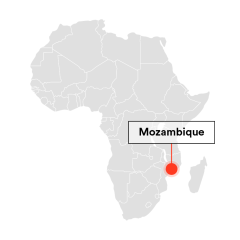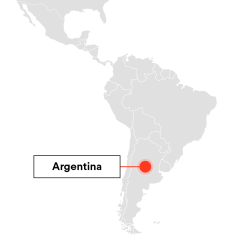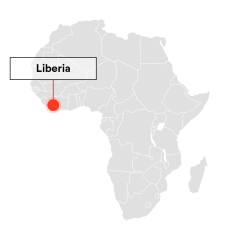Strengthen referral mechanisms

Strengthen referral mechanisms
Case Studies

Mozambique has introduced a digital police database for registration of GBV cases, known as “InfoViolência”. Instead of using paper, a police officer inserts the survivor’s data on a tablet connected with a server, thereby increasing efficiency and safety by digitizing the registration process. Ultimately, it will open the door to an integrated database that encompasses the whole GBV referral system in the country – a national digital platform to register and manage reported cases of violence.
"Once fully operational, Infoviolência will allow for more GBV survivors to be assisted, and for more cases to be resolved. This will help us measure how many reported cases result in convictions for perpetrators" - Dr. Joaquim Nhampoca, Police Headquarters, Department of Assistance to Families and Minors Victims of Violence.
Spotlight Initiative has supported this initiative by installing the InfoViolência platform on the Ministry of Interior’s server and is currently piloting the system in the three programme provinces. Support was provided to the Ministry of Interior to purchase computers, tablets and other digital material to support expansion of the InfoViolência database. In 2020, the Initiative continued to invest in improved management, analysis and use of data about the prevalence of gender-based violence by piloting InfoViolência in police stations and working to continuously improve the software. The system is now providing integrated and up-to-date data that are key to improving referrals of survivors of violence and to informing evidence-based policymaking.
Opportunities for scale-up: In rolling out the platform, it was found that many police officers did not know how to input data onto the tablets and use the information stored on the tablet to support survivors. Spotlight Initiative therefore set up trainings for 66 service providers who are now equipped to use the integrated electronic platform to help survivors.



In Argentina, women and girls can report cases of VAWG, including violence that takes place in public places, using a “Tramas en Acción” (Action Plots), created by the grantee Centro de Intercambio y Servicios para el Cono Sur Argentina in partnership with the Ministry for Women.
Following the purchase of tablets for staff and with the support of 30 volunteers, the Spotlight Initiative grantee CHRDA recorded at least 1,000 cases of VAWG. Additionally, 2,467 women at risk of and survivors of violence, including internally displaced women, were provided with comprehensive services including trainings on VAWG prevention and referral mechanisms, sexual and reproductive health and rights and economic empowerment and provided with support through safe spaces created in WhatsApp groups. Around a hundred WROs, community-based groups, service providers, and activists are part of the project’s coalition and have been trained on the SASA! Methodology to end VAW/G. Notably, they formed a referral hub to help manage caseload, reporting, interventions and referrals for GBV cases.
Additional funding through Spotlight Initiative and flexibility in the context of COVID-19 enabled the Spotlight Initiative grantee CREAW to provide a continuum of critical services at the height of increased cases of violence resulting from the secondary impacts of the COVID-19 crisis, including the provision of temporary shelters, cash transfers to support women to meet their immediate needs, dignity kits to vulnerable women and girls, psychosocial support and legal aid.



In Liberia, community awareness raising of VAWG and prevention activities have contributed to increased justice for survivors and strengthened institutions through gender-aware policies and stronger referral networks.
In 2020, Spotlight Initiative and partners supported community and national radio to share messaging that challenged negative social and gender norms that lead to VAWG, shared health guidelines related to COVID-19 and information about service referral pathways. These messages reached 23,425 community members, including traditional, religious and community leaders, and were aimed at mitigating the rising number of cases of violence during the COVID-19 pandemic.







